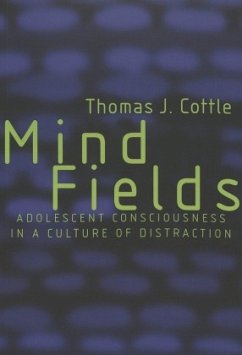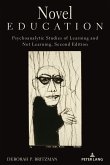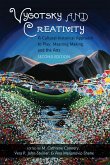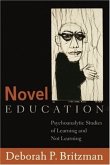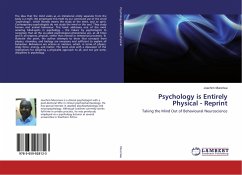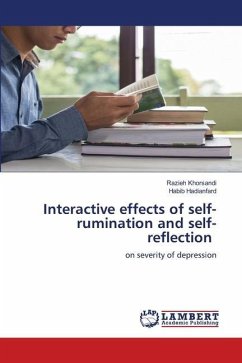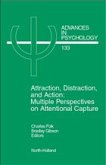In Mind Fields, Thomas J. Cottle argues that the period known as adolescence is essentially a social construct influenced greatly by popular culture. To understand young people, therefore, is to recognize how the very consciousness of adolescents is shaped by a culture, dominated by the entertainment industry, and the power of television and the computer, constantly urging them to turn away from the normal evolution of their personal and social lives. In this fundamentally distracting environment, young people explore their consciousness, sharing it with others, as well as form their sense of identity, all the while having these most inner experiences affected as much by the culture as by their own temperaments and personalities. It is the culture that determines the forms of recognition and independence, as well as intimacy and attachment that adolescents must learn. In the end, the author argues for the value of self-reflection as a critical ingredient of identity formation anda fundamental antidote to distracting cultural influences.
«Thomas J. Cottle has written a chilling indictment of our culture of distraction and its effects on young people and therefore on us all. By examining what we do to adolescents, we are drawn into an understanding of what was done to every one of us - ridiculed for our visions, prodded to conform, and distracted from the inner growth necessary to our individual and collective survival. But 'Mind Fields' is also deeply hopeful, reminding us that self-reflection and a commitment to critical thinking can enable us to become full human beings - striving, purposeful, imaginative, and powerful. This book is of value to anyone who was ever an adolescent, anyone who teaches or cares about adolescents, and any adult still struggling to create a life of purpose and meaning.» (Mara Sapon-Shevin, Professor of Inclusive Education, Syracuse University, New York; Author of 'Because We Can Change the World: A Practical Guide to Building Cooperative, Inclusive Classroom Communities')
«Groundbreaking and powerful, Tom Cottle's new book is brilliantly insightful, compellingly written and deeply wise. Cottle knows the heart of adolescence in America today. An astute cultural observer, attuned psychologist, and educator in the best of John Dewey's tradition, Cottle offers refreshing passion and robust analysis as he guides us through our everyday distractions toward clarity and purpose by emphasizing the profound role of reflection and awareness in shaping healthy adolescent- and adult-development. Must reading for both adults and adolescents.» (Daniel Frank, Psychologist, Head of Frances W. Parker School's Upper School, Chicago)
«Thomas Cottle has produced a fascinating, remarkably important work. If you ever wondered why our teenagers might celebrate the likes of Hannibal Lechter, Dr. Cottle's 'Mind Fields' is the first place to turn.» (Jack Levin, Director of the Brudnick Center on Violence and Conflict at Northeastern University in Boston, and co-author of 'The Will to Kill: Making Sense of Senseless Murder')
«This book is a gift to a fading democracy. Tom Cottle's voice turns once again to the sensibilities of America's youth. With brilliance and compassion, he tells the truth: our booming economy has little substance. In a frenzy, pop materialism is distorting our presence of mind with a glut of non-essential things, and the most telling victims are young citizens. To them, being detached and shallow is 'natural'. But Cottle, the astute human developmentalist, determines that while this may be normative, it is hardly natural. The solutions he offers reflect the lessons of John Dewey, but the strategies to overcome our society's dislocation face even more serious hurdles than they did a century ago.» (Felton Earls, Department of Psychiatry, Harvard University)
«Groundbreaking and powerful, Tom Cottle's new book is brilliantly insightful, compellingly written and deeply wise. Cottle knows the heart of adolescence in America today. An astute cultural observer, attuned psychologist, and educator in the best of John Dewey's tradition, Cottle offers refreshing passion and robust analysis as he guides us through our everyday distractions toward clarity and purpose by emphasizing the profound role of reflection and awareness in shaping healthy adolescent- and adult-development. Must reading for both adults and adolescents.» (Daniel Frank, Psychologist, Head of Frances W. Parker School's Upper School, Chicago)
«Thomas Cottle has produced a fascinating, remarkably important work. If you ever wondered why our teenagers might celebrate the likes of Hannibal Lechter, Dr. Cottle's 'Mind Fields' is the first place to turn.» (Jack Levin, Director of the Brudnick Center on Violence and Conflict at Northeastern University in Boston, and co-author of 'The Will to Kill: Making Sense of Senseless Murder')
«This book is a gift to a fading democracy. Tom Cottle's voice turns once again to the sensibilities of America's youth. With brilliance and compassion, he tells the truth: our booming economy has little substance. In a frenzy, pop materialism is distorting our presence of mind with a glut of non-essential things, and the most telling victims are young citizens. To them, being detached and shallow is 'natural'. But Cottle, the astute human developmentalist, determines that while this may be normative, it is hardly natural. The solutions he offers reflect the lessons of John Dewey, but the strategies to overcome our society's dislocation face even more serious hurdles than they did a century ago.» (Felton Earls, Department of Psychiatry, Harvard University)

